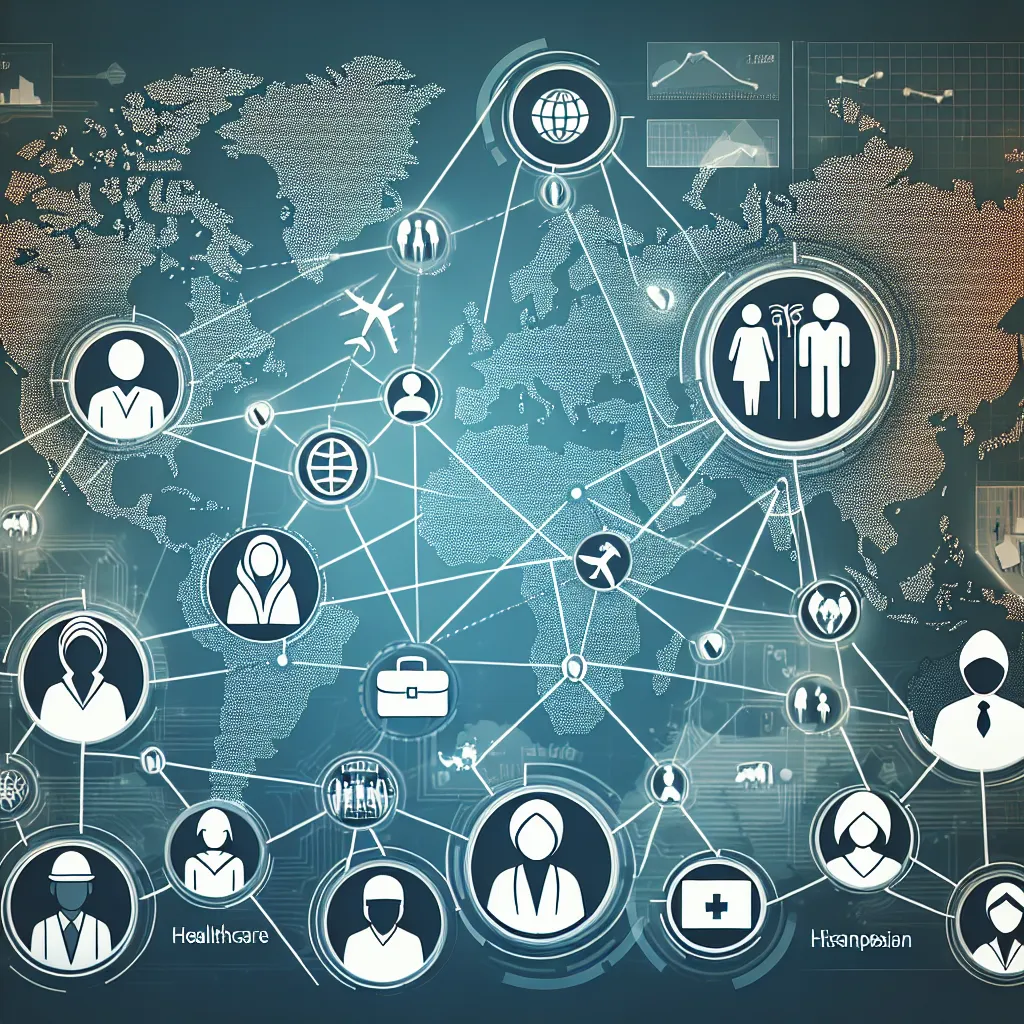Are you preparing for the IELTS Reading test and looking for high-quality practice materials? Look no further! In this article, we’ll provide you with a comprehensive IELTS Reading practice test focused on “The Rise of Online Platforms in Reshaping the Global Workforce.” This topic is not only relevant to the IELTS exam but also reflects the changing dynamics of the modern job market. Let’s dive into the passages and questions to help you sharpen your reading skills and expand your knowledge on this fascinating subject.
Nội dung bài viết
- Passage 1 – Easy Text
- The Gig Economy Revolution
- Questions 1-7
- Questions 8-10
- Passage 2 – Medium Text
- The Global Impact of Freelancing Platforms
- Questions 11-14
- Questions 15-19
- Passage 3 – Hard Text
- The Socioeconomic Implications of the Platform Economy
- Questions 20-25
- Questions 26-30
- Answer Key
- Passage 1 – Easy Text
- Passage 2 – Medium Text
- Passage 3 – Hard Text
 Online platforms reshaping global workforce
Online platforms reshaping global workforce
Passage 1 – Easy Text
The Gig Economy Revolution
The rise of online platforms has dramatically transformed the way people work and earn a living in the 21st century. This phenomenon, often referred to as the “gig economy,” has created new opportunities for millions of workers worldwide. Platforms such as Uber, Airbnb, and Fiverr have become household names, connecting service providers with customers in ways that were unimaginable just a decade ago.
One of the key advantages of these platforms is the flexibility they offer to workers. People can now choose when, where, and how much they want to work, allowing for a better work-life balance. This is particularly appealing to those who may have struggled with traditional 9-to-5 jobs, such as parents, students, or individuals with other commitments.
Moreover, online platforms have lowered barriers to entry for many professions. For instance, anyone with a car can become a ride-share driver, while those with spare rooms can earn extra income through home-sharing services. This democratization of work has opened up new avenues for income generation, especially in regions with high unemployment rates or limited job opportunities.
However, the gig economy is not without its challenges. Critics argue that it can lead to job insecurity, lack of benefits, and unpredictable income. Additionally, the classification of gig workers as independent contractors rather than employees has sparked debates about labor rights and protections.
Despite these concerns, the trend towards online platform-based work continues to grow. As technology advances and more sectors embrace digital transformation, it’s likely that the gig economy will play an increasingly significant role in shaping the global workforce of the future.
Questions 1-7
Do the following statements agree with the information given in the passage? Write
TRUE if the statement agrees with the information
FALSE if the statement contradicts the information
NOT GIVEN if there is no information on this
- The gig economy has created job opportunities for millions of people around the world.
- Online platforms like Uber and Airbnb have been operating for more than 20 years.
- Gig work offers more flexibility compared to traditional 9-to-5 jobs.
- All gig economy workers earn more money than those in traditional employment.
- The gig economy has made it easier for people to enter certain professions.
- Critics of the gig economy are concerned about job security and lack of benefits.
- The growth of the gig economy is expected to slow down in the near future.
Questions 8-10
Complete the sentences below. Choose NO MORE THAN TWO WORDS from the passage for each answer.
- The gig economy allows for a better __ __ for many workers.
- Online platforms have __ __ __ for many professions.
- The classification of gig workers as independent contractors has led to debates about __ __.
Passage 2 – Medium Text
The Global Impact of Freelancing Platforms
The proliferation of online freelancing platforms has ushered in a new era of work that transcends geographical boundaries. Websites such as Upwork, Freelancer, and Fiverr have created a global marketplace for skills, allowing businesses to access talent from around the world and enabling professionals to offer their services to a global clientele.
This shift has had profound implications for both developed and developing economies. In high-income countries, companies can now outsource tasks more easily, potentially reducing costs and increasing efficiency. For instance, a small business in the United States might hire a graphic designer from India or a software developer from Eastern Europe, accessing high-quality skills at competitive rates.
Conversely, for workers in developing countries, these platforms provide unprecedented access to international markets. A talented professional in a country with limited local opportunities can now compete for projects on a global scale, potentially earning far more than they would in their local job market. This has led to the emergence of digital nomads – professionals who leverage online platforms to work remotely from anywhere in the world.
The impact of these platforms extends beyond individual workers and businesses. They are reshaping entire industries and challenging traditional notions of employment. The IT sector, in particular, has seen a significant shift towards project-based work facilitated by online platforms. This trend is now spreading to other knowledge-based industries such as marketing, design, and consulting.
However, the rise of global freelancing also presents challenges. The increased competition can lead to downward pressure on wages in certain sectors. There are also concerns about the quality control of work produced through these platforms and the potential for exploitation of workers in countries with weaker labor protections.
Despite these challenges, the trend towards global freelancing appears irreversible. As more workers and businesses recognize the benefits of this model, it is likely to play an increasingly important role in shaping the future of work. The key will be finding ways to harness the advantages of this global talent marketplace while addressing its potential drawbacks.
Questions 11-14
Choose the correct letter, A, B, C, or D.
-
According to the passage, online freelancing platforms have:
A) Replaced traditional job markets entirely
B) Only benefited workers in developing countries
C) Created a global marketplace for skills
D) Reduced the quality of work in most industries -
The term “digital nomads” refers to:
A) People who travel frequently for leisure
B) Professionals who work remotely from various locations
C) Businesses that operate exclusively online
D) Workers who frequently change their professions -
Which sector has seen a significant shift towards project-based work due to online platforms?
A) Manufacturing
B) Agriculture
C) Retail
D) IT -
One of the challenges of global freelancing mentioned in the passage is:
A) Increased competition leading to lower wages in some sectors
B) Lack of interest from businesses in developed countries
C) Difficulty in accessing the internet in developing countries
D) Overly strict regulations on online work
Questions 15-19
Complete the summary below. Choose NO MORE THAN TWO WORDS from the passage for each answer.
Online freelancing platforms have created a (15) __ __ for skills, allowing businesses to access global talent. This has benefits for both (16) __ and __ economies. Companies in high-income countries can outsource tasks more easily, while workers in developing countries gain access to (17) __ __. The impact of these platforms extends beyond individuals, reshaping entire industries and challenging (18) __ __ of employment. However, there are concerns about wage pressure and (19) __ __ of work produced through these platforms.
Passage 3 – Hard Text
The Socioeconomic Implications of the Platform Economy
The ascendancy of online platforms in reshaping the global workforce has precipitated a paradigm shift in labor markets, engendering both unprecedented opportunities and formidable challenges. This transformation, often referred to as the “platform economy” or “gig economy,” has far-reaching socioeconomic implications that warrant rigorous examination.
At its core, the platform economy represents a fundamental reorganization of work, characterized by the disintermediation of traditional employment relationships. By directly connecting service providers with consumers, these platforms have effectively circumvented many of the institutional structures that have historically governed labor markets. This disintermediation has led to increased labor market flexibility, allowing workers to engage in multiple income-generating activities simultaneously and enabling businesses to access a more diverse and specialized talent pool.
However, this flexibility comes at a cost. The precariousness of platform-based work has become a subject of intense debate among policymakers and labor economists. Unlike traditional employment, gig work often lacks the stability and protections afforded by conventional labor laws. This has led to concerns about income volatility, lack of benefits, and the potential for worker exploitation. The classification of gig workers as independent contractors rather than employees has further exacerbated these issues, sparking legal battles in numerous jurisdictions.
From a macroeconomic perspective, the platform economy has had a profound impact on labor market dynamics. It has contributed to the fragmentation of work, with many individuals cobbling together a living from multiple part-time or project-based engagements. This trend has implications for everything from wage growth and income inequality to social mobility and economic stability.
Moreover, the global nature of many online platforms has led to a form of labor arbitrage, where businesses can access workers from lower-wage economies, potentially putting downward pressure on wages in higher-cost regions. This has raised concerns about the erosion of labor standards and the potential for a “race to the bottom” in terms of worker compensation and protections.
On the other hand, proponents of the platform economy argue that it has democratized access to work, providing opportunities for individuals who may have been marginalized in traditional labor markets. This includes people with disabilities, those in remote areas, and individuals with non-traditional work histories. The platform economy has also been credited with fostering entrepreneurship and innovation, as it lowers barriers to entry for small businesses and independent professionals.
The impact of online platforms on skill development and human capital formation is another area of significant interest. The rapid pace of technological change in the platform economy necessitates continuous learning and adaptation. This has led to the emergence of new educational models, such as micro-credentials and online learning platforms, which are more aligned with the just-in-time skill needs of the gig economy.
As the platform economy continues to evolve, policymakers face the challenge of developing regulatory frameworks that can balance the benefits of innovation and flexibility with the need for worker protection and social stability. This may require a fundamental rethinking of labor laws, social safety nets, and educational systems to better align with the realities of 21st-century work.
In conclusion, the rise of online platforms in reshaping the global workforce represents a complex and multifaceted phenomenon with profound socioeconomic implications. As this transformation continues to unfold, it will be crucial to monitor its impacts and develop adaptive policies that can harness its potential while mitigating its risks.
Questions 20-25
Choose the correct letter, A, B, C, or D.
-
The platform economy is characterized by:
A) Strengthening traditional employment relationships
B) Disintermediation of traditional employment structures
C) Increased regulation of labor markets
D) Decreased labor market flexibility -
One of the main concerns about gig work is:
A) Overregulation by government agencies
B) Lack of opportunities for skill development
C) Precariousness and lack of traditional employment protections
D) Limited access to global markets -
The fragmentation of work in the platform economy refers to:
A) The breaking up of large companies into smaller ones
B) Individuals earning income from multiple part-time or project-based jobs
C) The geographical dispersion of workers
D) The specialization of workers in narrow fields -
Labor arbitrage in the context of online platforms means:
A) Businesses accessing workers from lower-wage economies
B) Workers demanding higher wages through collective bargaining
A) The exchange of labor for cryptocurrency
D) The automation of labor-intensive tasks -
According to the passage, the platform economy has been credited with:
A) Increasing wages across all sectors
B) Reducing income inequality
C) Fostering entrepreneurship and innovation
D) Strengthening traditional labor unions -
The emergence of micro-credentials is linked to:
A) The need for continuous learning in the platform economy
B) The decline of traditional university education
C) Government regulation of online platforms
D) The standardization of gig work skills
Questions 26-30
Complete the summary below. Choose NO MORE THAN TWO WORDS from the passage for each answer.
The rise of the platform economy has led to a (26) __ __ in labor markets, offering new opportunities but also presenting challenges. This economy is characterized by the (27) __ of traditional employment relationships, leading to increased labor market flexibility. However, the (28) __ of platform-based work has raised concerns about worker protection and income stability. The global nature of online platforms has resulted in a form of (29) __ __, potentially affecting wages in higher-cost regions. Despite these challenges, the platform economy has been credited with democratizing access to work and fostering (30) __. As this transformation continues, policymakers face the task of developing appropriate regulatory frameworks.
Answer Key
Passage 1 – Easy Text
-
TRUE
-
FALSE
-
TRUE
-
NOT GIVEN
-
TRUE
-
TRUE
-
FALSE
-
work-life balance
-
lowered barriers entry
-
labor rights
Passage 2 – Medium Text
-
C
-
B
-
D
-
A
-
global marketplace
-
developed, developing
-
international markets
-
traditional notions
-
quality control
Passage 3 – Hard Text
-
B
-
C
-
B
-
A
-
C
-
A
-
paradigm shift
-
disintermediation
-
precariousness
-
labor arbitrage
-
entrepreneurship
As an experienced IELTS instructor, I hope this practice test has provided you with valuable insights into the IELTS Reading section and helped you explore the fascinating topic of online platforms reshaping the global workforce. Remember to practice regularly and familiarize yourself with various question types to improve your performance. Good luck with your IELTS preparation!
For more IELTS practice materials and tips, check out our other articles on the rise of fintech in the global financial sector and the impact of digital technology on global communications. These topics are closely related to the changing nature of work in the digital age and can provide additional context for your IELTS preparation.


